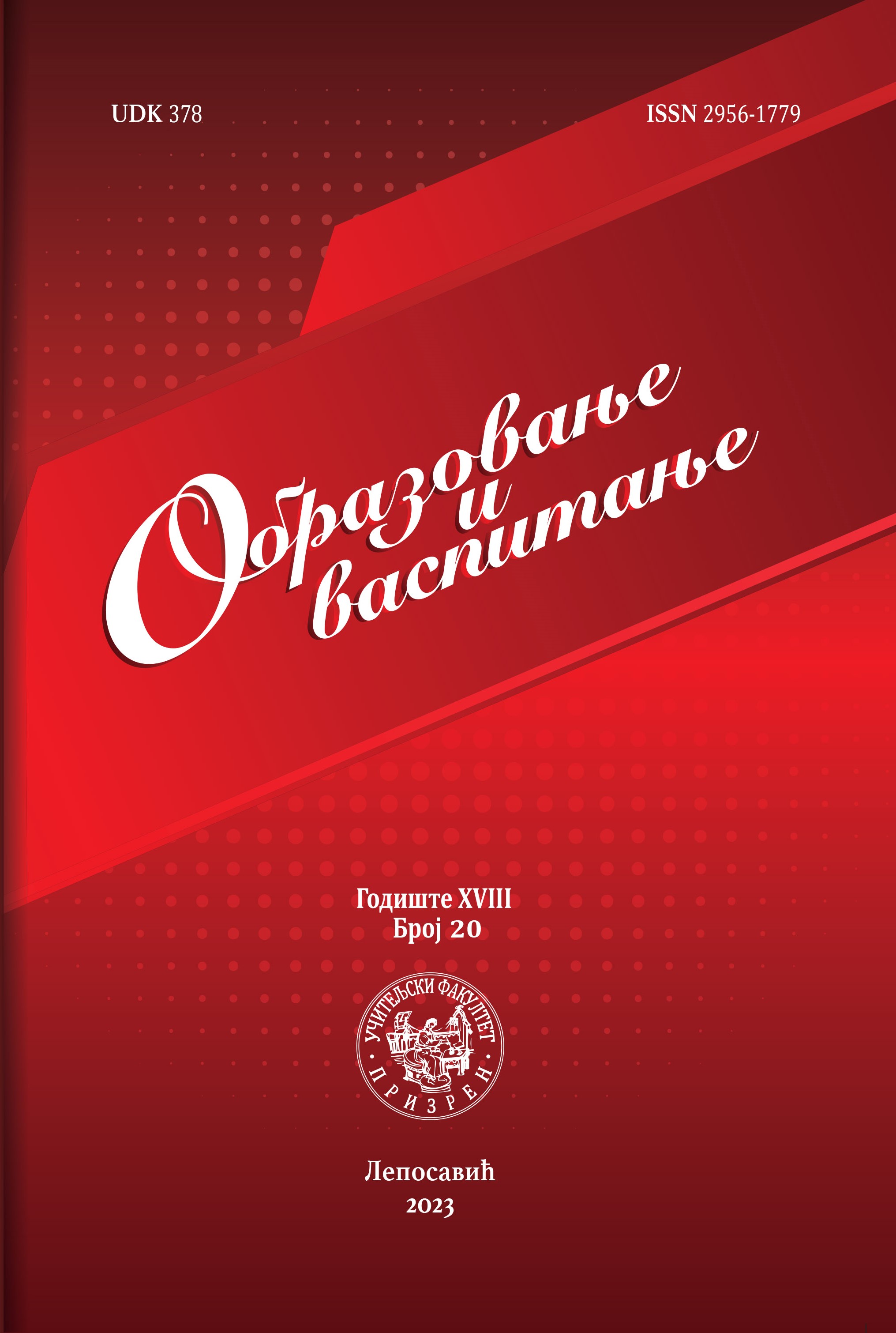Искуство са коришћењем Би-Би-Си микро:бита у настави
Sažetak
Сажетак: Micro:bit је нови уређај за учење који олакшава учење програмирања и електронике. Овај уређај омогућава развој логичког мишљења, вештине решавања проблема и дигиталне писмености код ученика уопште. Коришћење micro:bit омогућава релативно лако програмирање у различитим програмским окружењима на различитим рачунарима и мобилним телефонима. Додатне функционалности micro:bit се постижу проширењем са посебним елементима. Истраживање је спроведено у основној школи у Републици Србији. Ученици су подељени у контролну и експерименталну групу, при чему су ученици експерименталне групе користили micro:bit уређај. Резултати рада показују да употреба micro:bit на часу позитивно утиче на учинак ученика из предмета „Техника и технологија“ за час „Управљање процесима и стварима на даљину коришћењем информационо-комуникационих технологија“. Поред тога, приказана су размишљања ученика о употреби micro:bit на часу.
Reference
Austin, J., Baker, H., Ball, T., Devine, J., Finney, J., De Halleux, P., Hodges, S., Moskal, M. & Stockdale, G. (2020). The BBC micro:bit: from the UK to the world. Communications of the ACM, 63(3), 62-69.
Ball, T., Protzenko, J., Bishop, J., Moskal, M., De Halleux, J., Braun, M., Hodges, S., & Riley, C. (2016, May). Microsoft touch develop and the bbcmicro:bit. In:Proceedings of the 38th International Conference on Software Engineering Companion(637-640).
Carlborg, N., Tyrén, M., Heath, C., & Eriksson, E. (2019). The scope of autonomy when teaching computational thinking in primary school. International journal of child-computer interaction, 21, 130-139.
Gibson, S., & Bradley, P. (2017). A study of Northern Ireland Key Stage 2 pupils’ perceptions of using the BBC Micro:bit in STEM education. The STeP Journal, 4(1), 15-41.
Harron, J. R., Jin, Y., Hillen, A., Mason, L., & Siegel, L. (2022). Maker Math: Exploring Mathematics through Digitally Fabricated Tools with K–12 In-Service Teachers. Mathematics, 10(17), 3069.
Kalogiannakis, M., Tzagaraki, E., &Papadakis, S. (2021, March). A systematic review of the use of BBC micro:bit in primary school. In:Conference Proceedings New Perspectives in Science Education 2021.
Kim, S. W., & Lee, Y. (2022). Developing Students’ Attitudes toward Convergence and Creative Problem Solving through Multidisciplinary Education in Korea. Sustainability, 14(16), 9929.
Lu, S. Y., Wu, C. L., & Huang, Y. M. (2022). Evaluation of Disabled STEAM-Students’ Education Learning Outcomes and Creativity under the UN Sustainable Development Goal: Project-Based Learning Oriented STEAM Curriculum with Micro:bit. Sustainability, 14(2), 679.
Медар, Ј.,&Ратковић, М. (2021). Применаинформационо-комуникационихтехнологијауинклузивномобразовномконтексту - искустванаставникатокомпандемијеЦОВИД-19. Васпитањеиобразовањеудигиталномокружењу, 109-113.
Milić, M., Kukuljan, D., &Kurelović, E. K. (2018). Micro:BitImmplementation in ICT Education. In:The Eurasia Proceedings of Educational and Social Sciences, 11, (128-133).
Минић, С. Г.,&Крецуљ, Д. Д. (2019). Micro:bitунастави. ЗборникрадоваУчитељскогфакултетаПризрен-Лепосавић, 13, 51-60.
Monk, S. (2018). Programming the BBC micro:bit: Getting Started with MicroPython. McGraw-Hill Education.
Наместовски, Ж. (2013). Анализаефекатаприменеобразовнихсофтверанамотивисаностнаставникаучениканаставникаиученикаунижимразредимаосновнешколе. Докторски рад. Зрењанин: Техничкифакултет„МихајлоПупин“.
Папић, Ж.,Алексић, В. &Кузмановић, Б. (2015). Применаинформационо-комуникационихтехнологијаунаставномпроцесу, Учењеинастава, 3(1), 587-602.
Pellegrino, M. A., Roumelioti, E., D’Angelo, M., &Gennari, R. (2022). Children’s Participation in the Design of Smart Solutions: A Literature Review. Smart Cities, 5, 475-495.
Schmidt, A. (2016). Increasing Computer Literacy with the BBC micro:bit. IEEE Pervasive Computing, 15(2), 5-7.
Sentance, S., Waite, J., Hodges, S., MacLeod, E., &Yeomans, L. (2017, March). „Creating Cool Stuff“ Pupils' Experience of the BBC micro:bit. In:Proceedings of the 2017 ACM SIGCSE technical symposium on computer science education(531-536).
Shahin, M., Gonsalvez, C., Whittle, J., Chen, C., Li, L., & Xia, X. (2022). How secondary school girls perceive Computational Thinking practices through collaborative programming with the micro:bit. Journal of Systems and Software, 183, 111107.
Stanojević, D., Rosić, A., Ranđelović, B., &Stanković, Ž. (2021). Micro:Bit as a Tool for Improvement of Education. International Journal of Management Science and Business Administration, 7(2), 14-19.
Tan, A. L., Gillies, R., &Jamaludin, A. (2021). A case study: using a neuro-physiological measure to monitor students’ interest and learning during a micro:bit activity. Education Sciences, 11(8), 379.
Voštinár, P., &Knežník, J. (2020). Education with BBC micro:bit. International Journal of Online and Biomedical Engineering (iJOE), 16(14), 81-94.

